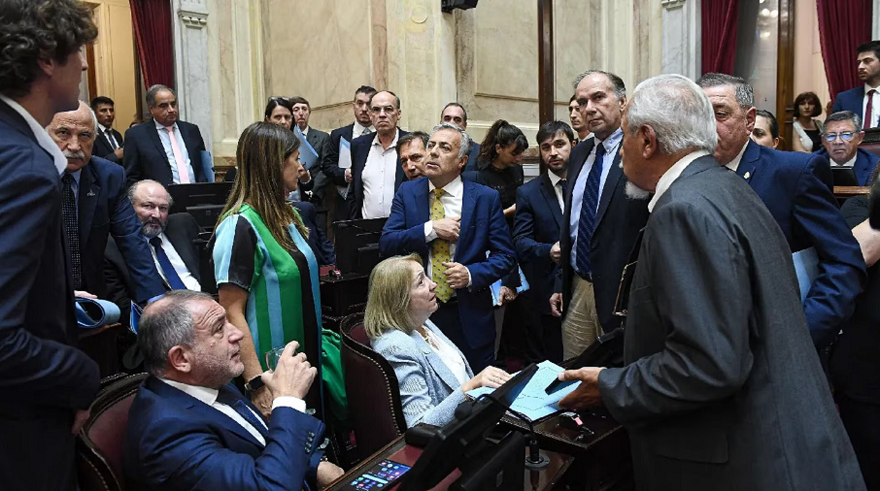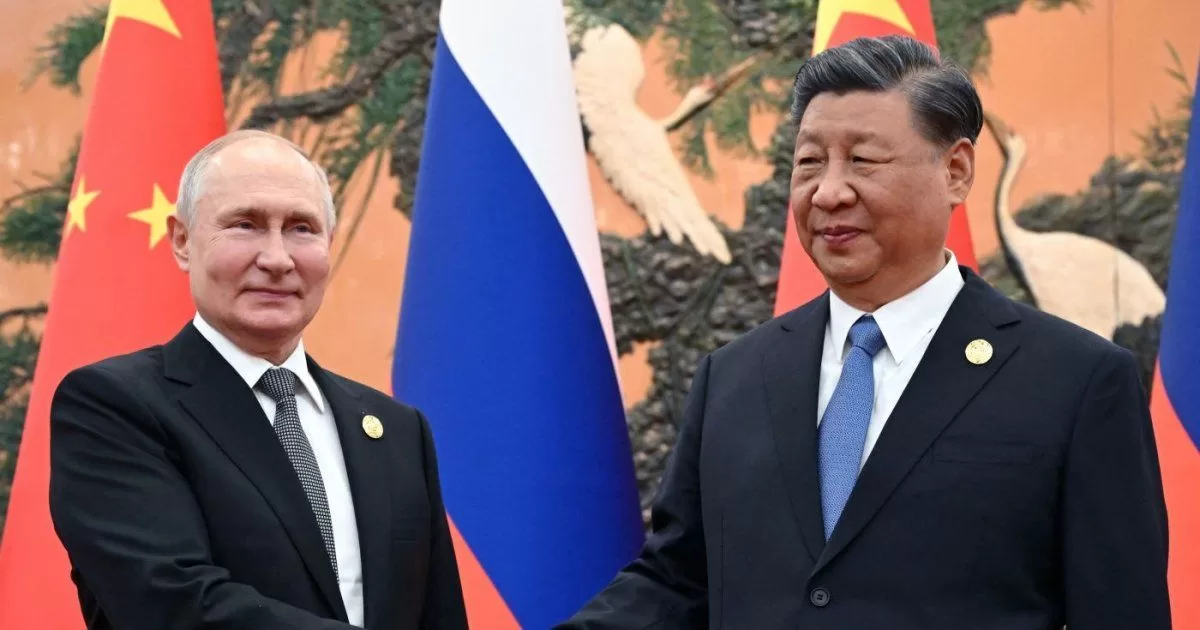The Frente de Todos y Juntos por el Cambio probe an agreement to reconvene after 5 months, Weakness in Kirchnerism and opposition pressure
By Pablo Sieira
12/04/2023 – 15,38hs
After the scandal that arose in the Senate at the end of March when the opposition withdrew from the premises and left the ruling party without a quorum, the bench of the Frente de Todos opened a negotiationforced by the loss of its majority, to try to agree on an agenda that allows them to return to meet next thursday after five months of inactivity.
The negotiations began last week, with a new request for a special session by Together for Change to put pressure on the vice president Cristina Kirchner and once again displaying his numerical weakness in the Chamber whose agenda he had been managing up to now.
“The ruling party cannot stretch this situation any further,” an opposition source slipped to iProfesional while confirming that after the failed attempt to impose an agenda in the last session, the Frente de Todos agreed to sit down this Wednesday with the opposition to seek an agreement in Parliamentary work.
The main opposition bench exposed that when you agree with Federal Unitthe new bloc created from the break of four senators with the Frente de Todos, outnumber the ruling party and reach quorum to meet without your consent. This forces those led by Cristina Kirchner to seek a consensus to get out of the paralysis legislative.
And it is that the Senate no session since last november despite the fact that the Government had convened extraordinary sessions for January and February and the list of pending issues grew ever longer, from the delayed appointment of judges to fill vacancies in the Federal Justice of Rosario until the Earnings exemption for healthcare workers.
In Together for Change they experience the negotiation itself as a political triumph, given that what they were looking for, as they stated in recent weeks, was for the Frente de Todos to recognize that it no longer reaches the 37 senators needed to have a quorum and needs to negotiate with the opposition. Either way, the landscape is open.

The ruling party seeks an agreement after the strong fight in which the opposition exposed the loss of majority
Without a majority, the ruling party seeks to agree with the opposition: what are the negotiations like?
Just as they maintain that Kirchnerism cannot further stretch the current situation with a paralyzed Senate, in the opposition they also believe that there will be a consensus on the projects that would be voted on in the session scheduled for Thursday.
Example of this is the Zero Alcohol law for drivers of vehicles, which triggered the fight of the session that was frustrated on March 30. The Frente de Todos wanted to alter the order of topics and put this project in the first place without having agreed with Together for Change and Federal Unity. With the bid for power in the middle, the issue served as an excuse to withdraw from the venue.
Although in the main opposition bench there are senators from wine-producing provinces who reject this project, among them the president of the interbloc, alfredo cornejosources in the space consulted by iProfessional fronted that there was other members who “asked to include” this initiative which already has half the sanction of the Chamber of Deputies.
The negotiation at the Parliamentary Labor meeting this Wednesday will have a lot to do with the inclusion or not of that project and with the order that it will occupy in the extensive agenda that the senators have in view.
It happens that almost all pending initiatives have agreement because they appear in the two session requests that the Frente de Todos y Juntos por el Cambio presented separately last week. One more sign that the real conflict that paralyzes the Senate has little to do with the projects and a lot to do with the political wrestling for control of the agenda.
What projects would advance if there is an agreement?: Profits, retirees, judges and Lucio Law
The main issue on which there is broad consensus is the appointment of judges for the Santa Fe city of Rosario and the bill to expand the number of courts in the Federal Justice of Santa Fe. Both issues have been claimed for months by all the deputies and senators from Santa Fe in the face of the advance of drug violence in the province.

The Upper House has not been in session for five months and several of the issues that would be discussed have a broad consensus
In addition to the sheets to cover three vacancies in the Federal Justice of Santa Fe, the senators will convert into law the project promoted by the deputies from Santa Fe to create another 50 positions in the Judiciary from that province: 27 prosecutors (15 based in Rosario), 9 public defenders and 14 criminal judges.
On the other hand, there would be agreement to approve the law that exempts health workers who cover more than four shifts per month from paying Income Tax on remuneration for these tasks. The Senate could also approve and send to Deputies the project that eliminates the fida process for retirees.
Another of the central issues that would come out of the Senate is the so-called “Lucio Law” on training to prevent child abuse, the National Plan for Congenital Cardiopathies and a law that seeks to simplify the process of renewing the Single Certificate for Disability (CUD).

